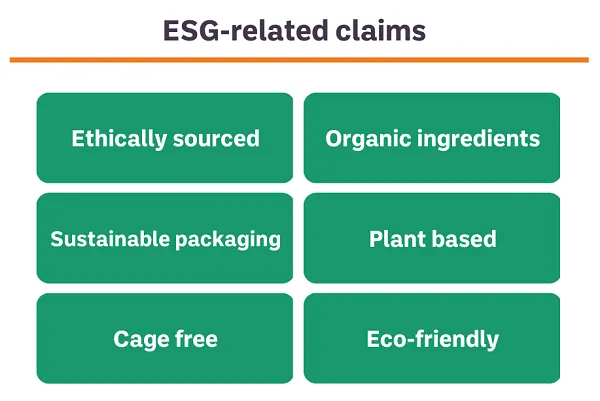Plant-forward diets (finally) go mainstream as the main course
Plant-based diets are finally getting their moment in the sun. Way back in 1971, a little book called Diet for a Small Planet, by Frances Moore Lappé, suggested that reducing or eliminating meat from our diets could provide a more sustainable way of life for our planet and our personal health.
Now, over 50 years later, the idea that plant-based meals can be center of plate, replacing meat as the focus, has been normalized. Customers request vegan and vegetarian entrees regularly. In fact, according to Datassential, a food-industry data research firm, the public is becoming familiar and more discerning about their choices: 40% of consumers indicate a preference for plant-based meat substitutes, while 50% prefer traditional plant-based proteins, like lentils or chickpeas.
There are many reasons that consumers choose to reduce or eliminate animal proteins from their diets, including:
- Health and wellness-related focus
- Ethical concerns about animal welfare
- Care for the environment
While implementing environmental, social governance (ESG) goals can seem daunting, taking action now can yield rewards for hospitality businesses that make this a focus. Entegra can show you how.
How does a plant-based diet help with sustainability?
Translating consumers’ desires for plant-based menu items into a sound business strategy that supports your corporate social responsibility goals takes planning but is worth it given that it appeals to consumers.
The traditional diet, which is high in animal products, has a much larger environmental footprint compared to plant-based and plant-forward diets.
Beef, pork and dairy contribute to a large amount of greenhouse gas emissions. Cows and other livestock produce methane, a potent greenhouse gas, during digestion, and manure management also releases methane and nitrous oxide.
In addition, the deforestation of land to create pasture for livestock and the production of feed crops for animals also contribute to the emissions of carbon dioxide. But plant-based and plant-forward diets have a much lower environmental footprint as they rely on crops that can be grown on the same land year after year, reducing the need for deforestation.
Customers reward businesses for their ESG actions
In research conducted by research firms NielsenIQ and McKinsey1, they found that not only do consumers care about sustainability, but they also support it with their purchasing power. Businesses who understand and engage this demographic can add to their customer base.
Their research showed a link between brands that showcase an ESG-related claim and increased consumer spending. For foodservice operators across industries, think about adding sustainability language where customers can see it:

The NielsenIQ/McKinsey study found that products making ESG-related claims averaged 28 percent cumulative growth over the past five-year period, versus 20 percent for products that made no such claims.
What steps can hospitality businesses take?
The hospitality industry can play a critical role in reducing its environmental footprint by promoting and serving more plant-based and plant-forward options, sourcing ingredients from local and organic farmers and educating customers about the environmental impact of their food choices. By making these changes, the foodservice and restaurant industry can help create a more sustainable future for all. And increasingly, restaurants in senior living and rehabilitation communities receive requests for plant-forward meals. Consumers are looking to hospitality businesses to adapt to their culinary needs and preferences at all ages and stages of life.
Replacing one meat-based meal with a plant-based option one time a week could save:
|
How can Entegra help businesses meet their ESG goals with a plant-forward strategy?
From both a purchasing and menu creation perspective, Entegra can help hospitality clients plan and execute their ESG initiatives.
What is sustainable procurement?
As a group purchasing organization, Entegra leverages its buying power to make purchasing sustainable products more streamlined and affordable. We have curated a list of suppliers who use sustainable manufacturing and distribution practices.
Entegra also makes it easier to find the industry’s most delicious and innovative solutions on the market. We can help you satisfy the growing demand for alternative proteins while maximizing your bottom line. According to Technomic’s Healthy Eating Report, nearly 90% of operators report that plant-based offerings drive more customers to their operations, indicating a margin potential of 58%.
What solutions does Entegra provide for plant-forward dishes?
The Entegra Performance Kitchen (EPK) equips your kitchen with the tools and expertise for world-class culinary innovation and menu optimization. With expertise from our in-house culinarians, you can stand out from the competition, whether your business is hospitality, foodservice or senior living care. From time-in-motion studies to helping to test energy-efficient equipment, our culinarians will work with you to achieve your sustainability and savings goals.
Menu development with in-house culinarian
The EPK culinarians provide first-hand guidance for strategic menu ideation and direction. Our culinary director provides new menu training, ingredient insights and reports on the latest food trends, including developing more plant-based dishes to help clients reduce costs.
Looking for inspiration and ideas to make your hospitality business more sustainable? Don’t wait. Download the white paper, Achieve your sustainability and ESG goals with a GPO partner.
March 09, 2023
